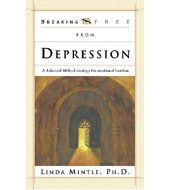 You feel depressed and you know you need help. Where do you begin?
You feel depressed and you know you need help. Where do you begin?
First step, make an appointment with a mental health professional. This could include a psychiatrist (able to prescribe medications), licensed psychologist, licensed clinical social worker, licensed marriage and family therapist, or licensed counselor.
The first visit is an evaluation. It involves a series of questions designed to get to know you and understand your symptoms and why they are presenting now. It is always important to rule out any medical cause for symptoms such as thyroid disease, infection, etc.
Next, a formulated treatment plan will be devised. This will take into account your history, recent events and the severity of your symptoms.
Psychotherapy is usually a place to begin. Cognitive-Behavioral Therapy is an evidenced-based approach designed to look at your thinking, emotions and perceptions. Interpersonal therapy helps with relationship and social issues. Lifestyle changes are usually a part of therapy as well. A personalized plan for diet, exercise, and being active will be developed. Usually, you begin with small changes that provide success.
Other treatments for more severe types of depression can include electroconvulsive therapy, transcranial magnetic stimulation, or vagus nerve stimulation. These need to be discussed with your doctor to see if they even make sense for you due to the severity of the depression.
Medication is an option. The SSRIs are the class of medications used most often to treat depression. But medications often don’t reach their effectiveness for 6-8 weeks so the work of therapy is important. Nad in my opinion, medication alone isn’t the best treatment. You need to be working on the issues causing or sustaining depression.
I know it all sounds a little overwhelming, but here is the good news. Depression treatment usually works. People get better. But if you never go for help, you can suffer unnecessarily.
Struggling? Get help today!
For more help, Breaking Free from Depression by Dr. Linda Mintle


